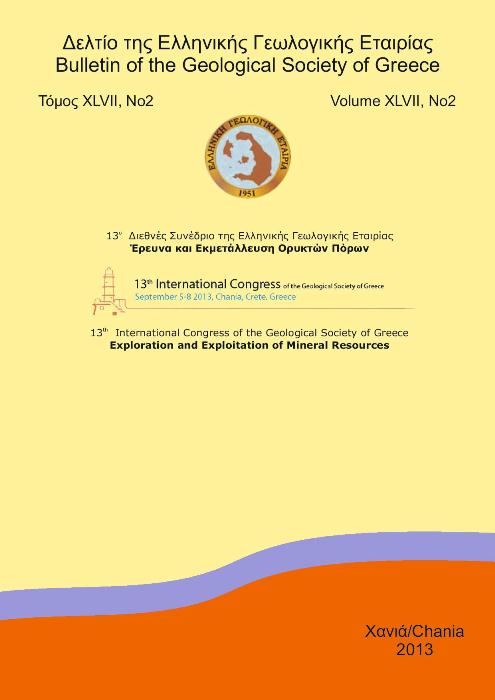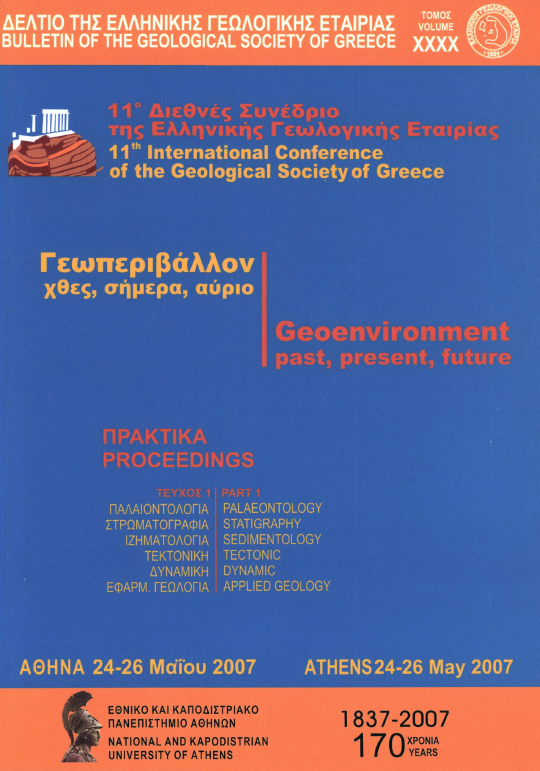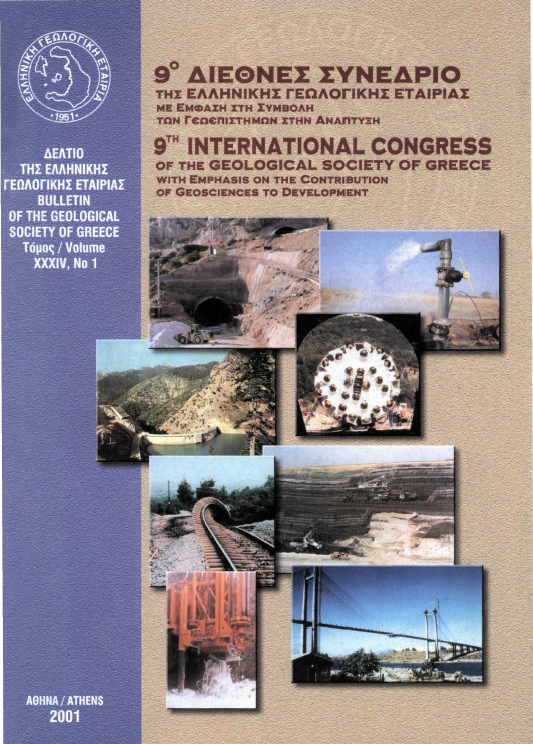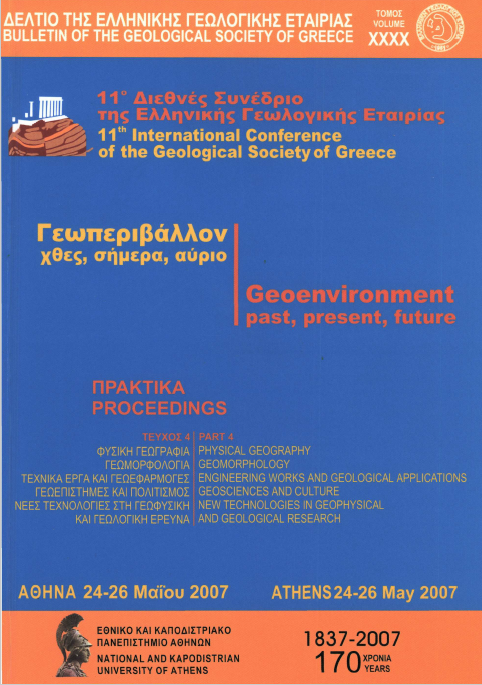OFFSHORE FAULTING IN THE AEGEAN SEA: A SYNTHESIS BASED ON BATHYMETRIC AND SEISMIC PROFILING DATA
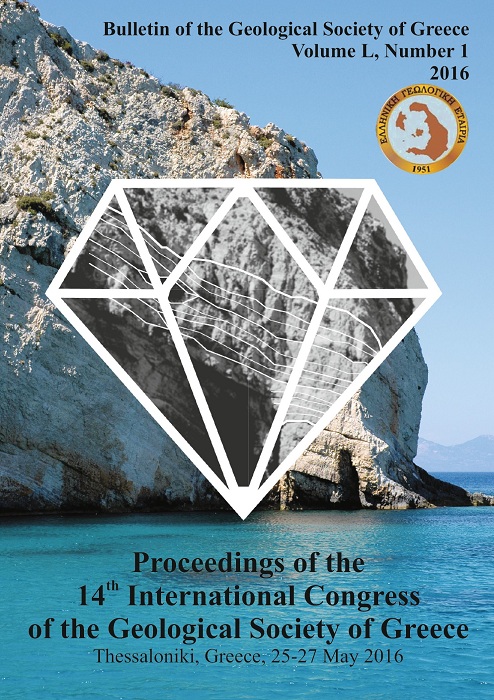
Abstract
Twenty five years after a first attempt by Mascle and Martin (1990), this paper aims at delivering an updated and considerably richer, map of the offshore faults in the Aegean Sea. Reinterpretation of vintage analogue seismic profiles, interpretation of new profiles and records of swath bathymetry data made available in the last two decades, as well as relocation of published faults originally interpreted on lowresolution bathymetric maps, on the new, more accurate bathymetric background have enabled the preparation of a more precise and complete map of active faults occurring in the Aegean Sea. This attempt is a first step towards the creation of an offshore faults database.
Article Details
- How to Cite
-
Sakellariou, D., & Tsampouraki-Kraounaki, K. (2016). OFFSHORE FAULTING IN THE AEGEAN SEA: A SYNTHESIS BASED ON BATHYMETRIC AND SEISMIC PROFILING DATA. Bulletin of the Geological Society of Greece, 50(1), 134–143. https://doi.org/10.12681/bgsg.11712
- Section
- Structural Geology

This work is licensed under a Creative Commons Attribution-NonCommercial 4.0 International License.
Authors who publish with this journal agree to the following terms:
Authors retain copyright and grant the journal right of first publication with the work simultaneously licensed under a Creative Commons Attribution Non-Commercial License that allows others to share the work with an acknowledgement of the work's authorship and initial publication in this journal.
Authors are able to enter into separate, additional contractual arrangements for the non-exclusive distribution of the journal's published version of the work (e.g. post it to an institutional repository or publish it in a book), with an acknowledgement of its initial publication in this journal. Authors are permitted and encouraged to post their work online (preferably in institutional repositories or on their website) prior to and during the submission process, as it can lead to productive exchanges, as well as earlier and greater citation of published work.




